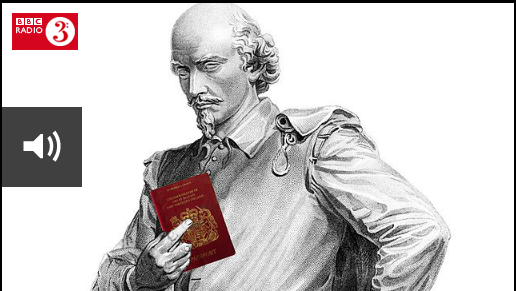Most people ask me how I stumbled across such an interesting field of research so I thought I'd base my blog today on my relationship with Shakespeare and Bollywood. Before I do, however, here's a link to an episode of The Essay by Poonam Trivedi - the person directly responsible for my interest in Shakespeare and Bollywood - on BBC Radio Three.
My curiosity about the topic of Shakespeare and Bollywood was initiated on reading Dr. Poonam Trivedi's articles on the subject as an MA student at Royal Holloway, University of London in 2006. I delivered a paper at Royal Holloway in class on Maqbool (2004) which led to me eventually choosing to explore the topic further in my MA dissertation. I had seen Vishal Bhardwaj's Maqbool and then Omkara in 2006 on the big screen immediately after their release and was impressed with the ability of a commercial film maker in Bollywood (and I say this with all the baggage of a Bengali, educated in a convent school and college where drama is a serious preoccupation, nurturing a secret love of all things Bollywood) to so adroitly adapt two plays of Shakespeare which most English educated students study in the course of their education. Shakespeare is part of most school and college curricula in India and Indians tend to think of it as an academic topic, of interest to a niche category of English educated elite, and therefore not suitable for Bollywood. And yet, Maqbool and Omkara achieved critical and commercial success, thereby sparking the trend of Bollywoodizing Shakespeare in the industry at present. For me it meant a merging of my high culture passion for Shakespeare with my low culture interest in Bollywood.
Bhardwaj's films led me on a quest for further adaptations of Shakespeare in Bollywood and I encountered films like The Shakespeare Wallah (1965) and Angoor (1982). Not only did I watch several recognisable and acknowledged adaptations over the course of the years, but I also began to watch Bollywood films with an eye to discovering not-so-obvious Shakespearean influences such as the balcony scene in 1942 A Love Story (1994) and the image of a boat named Much Ado in Dil Chahta Hain (2001). It became a bit of an obsession and is no doubt encouraged by my sister's incredible memory for details in any Bollywood film she watches. She remembers every common trope from every possible movie she has ever watched which, combined with my obsessive habit of making lists, helped me to see emerging links, patterns and influences. I am convinced that most of these patterns and influences are deeply embedded in the very idiom of Bollywood, their roots often forgotten or unrecognisable from other sources that were used by the precursor of the Bollywood industry - Parsi theatre.
Bollywood is busy adapting Shakespeare now with three adaptations of Hamlet in the pipeline and two of The Comedy of Errors. Theatre groups like Phizzical and The Company Theatre are producing 'Bollywood adaptations of Shakespeare'. The topic is generating a lot of interest in academic circles as well. The first book devoted exclusively to Shakespeare and Bollywood was published last month (http://www.amazon.co.uk/Bollywood-Shakespeares-Reproducing-Shakespeare-Dionne/dp/1137386126). I am organising a conference in London in June this year to bring together researchers in this field of study. We have people coming in from New York, India, Ireland and different parts of the UK and Dr. Poonam Trivedi is our keynote speaker. Which sorts of brings me full circle!



